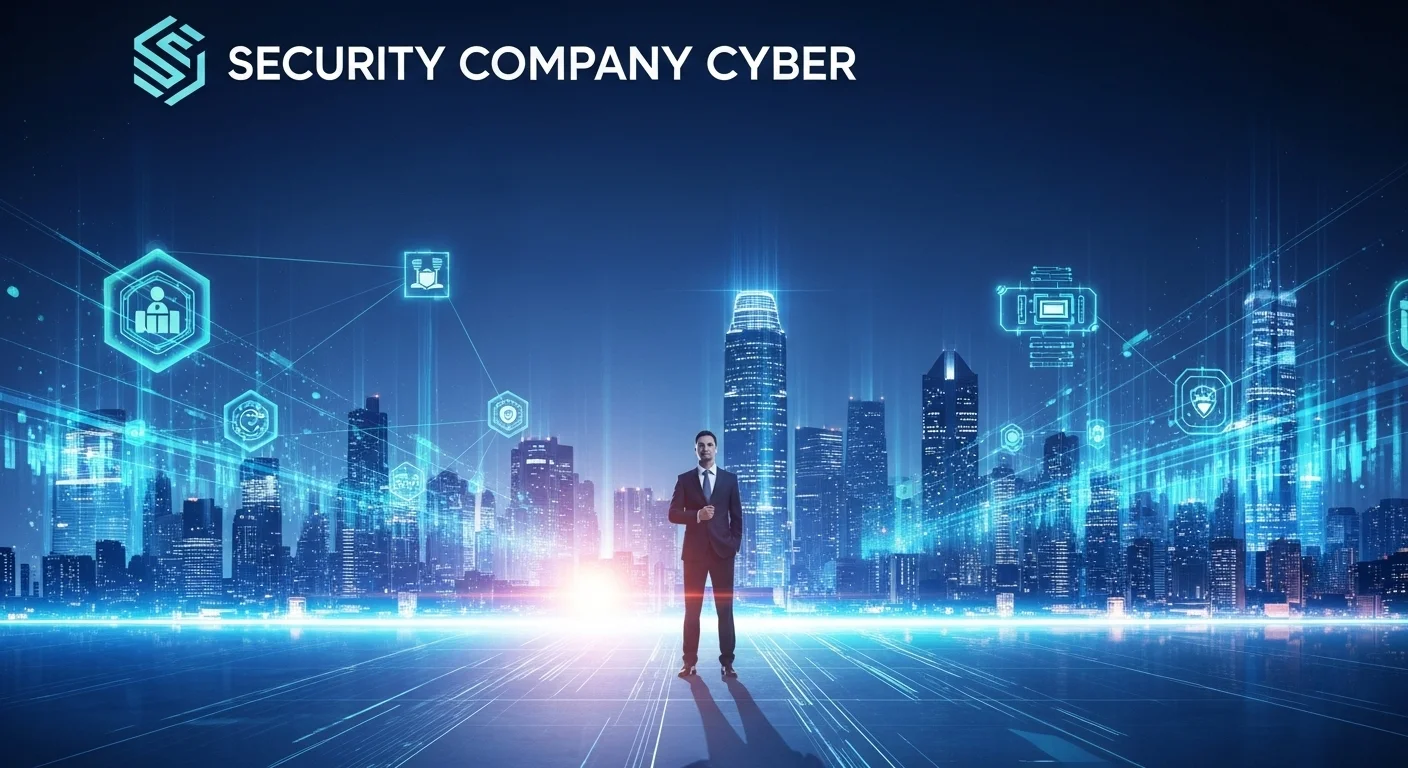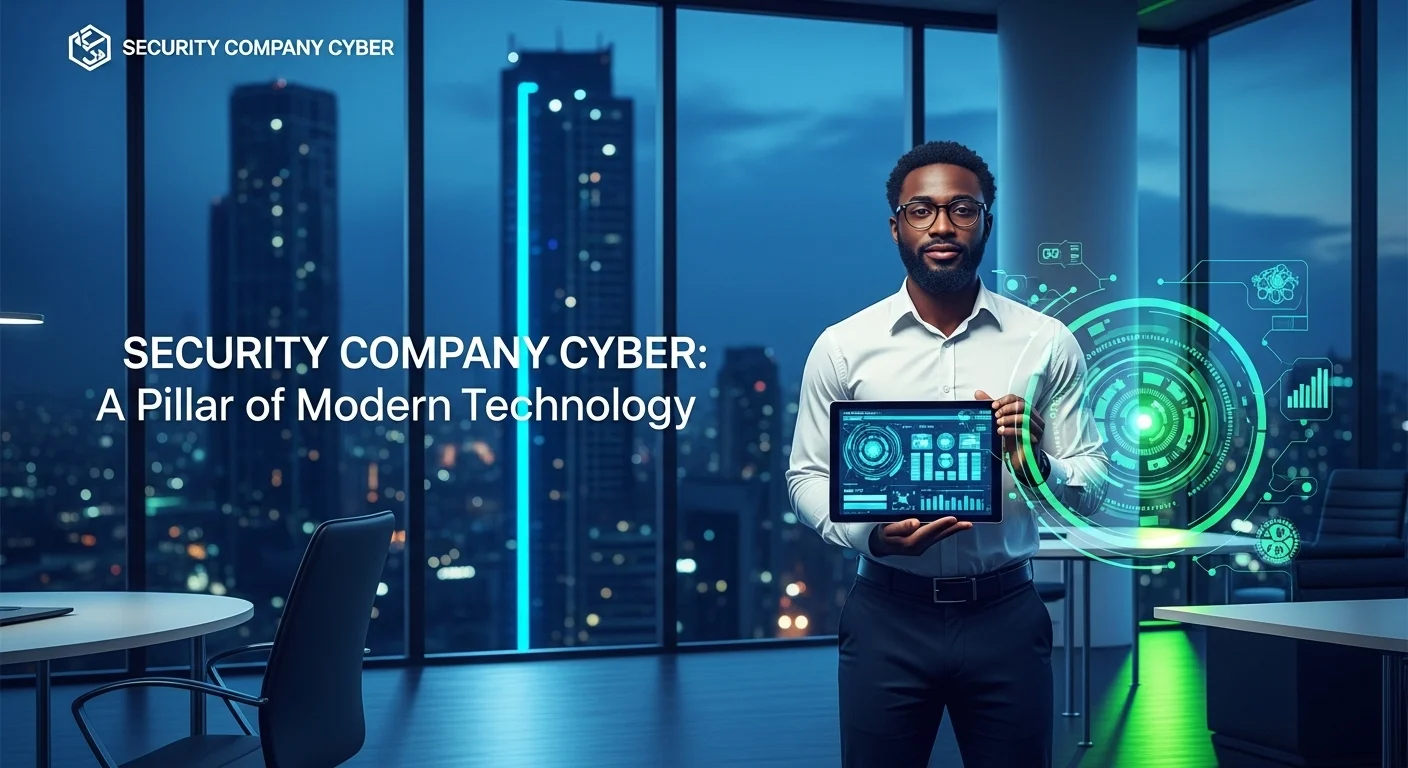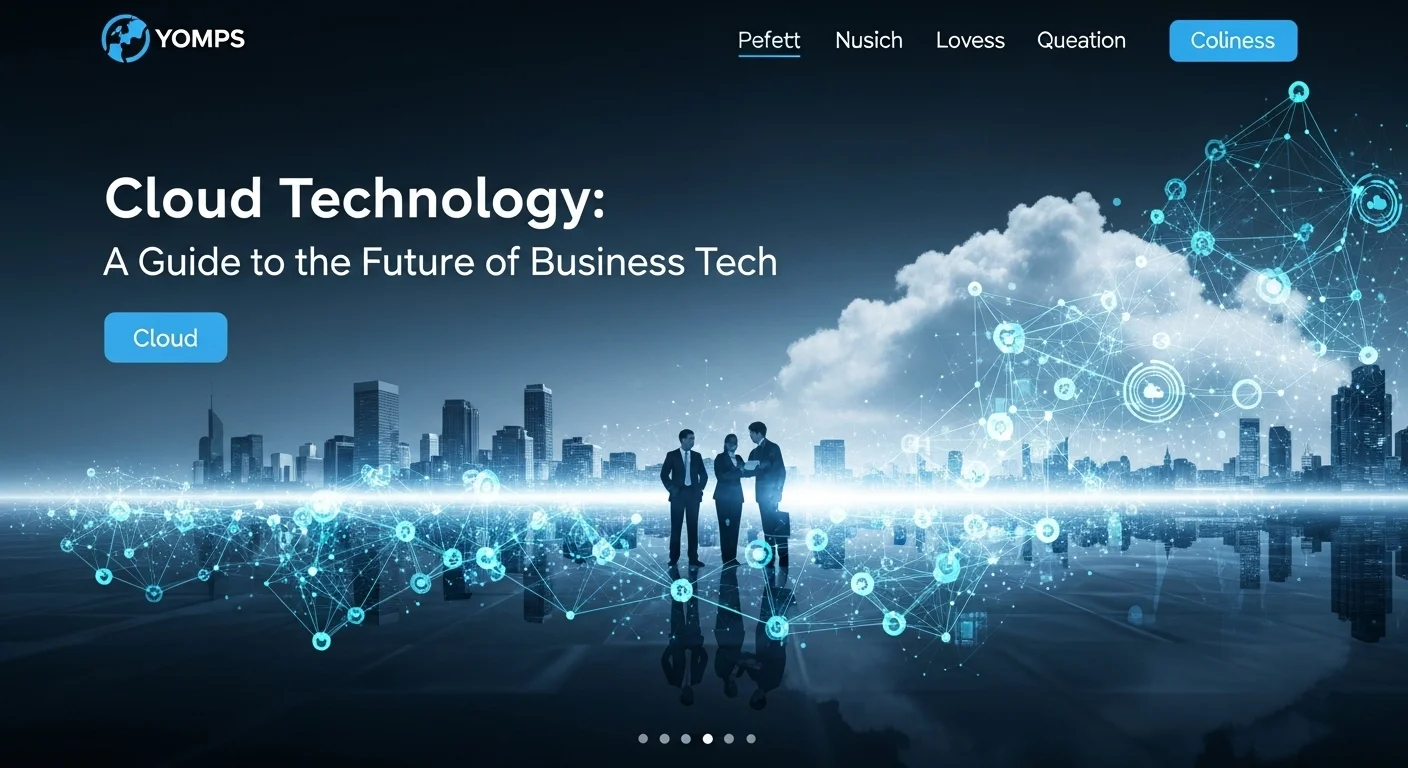What is a Cyber Security Company, and Why Do You Absolutely Need One?

Executive Summary
In my 20+ years navigating the digital trenches of cybersecurity, I've seen businesses thrive because they took security seriously, and I've seen others crumble because they thought it wouldn't happen to them. In today's hyper-connected world, a cyber security company is no longer a luxury for big corporations; it's an essential partner for any business with a digital footprint. This article is my attempt to pull back the curtain on the world of cybersecurity. We'll explore what these firms do, the services they offer—from hunting threats to training your team—and why they are the bedrock of modern technology and business survival. I’ve structured this to be a practical guide, especially for small and mid-sized businesses, to help you understand your security risks and how to pick the right partner. You'll learn the real-world difference between various security services and discover the strategies, like using AI, that will make your business more resilient. Think of this as your personal roadmap to navigating the complex digital world safely and with confidence.
Table of Contents
Table of Contents
What is a Cyber Security Company and why is it so important?
In an age where your company's data is more valuable than its physical assets, the term 'cyber security company' describes your digital guardian. But what does that really mean? Simply put, a cyber security firm is a team of specialists dedicated to one thing: protecting your digital world from being stolen, damaged, or held for ransom. These aren't your typical IT support folks; they are a highly specialized force. I've been in the field long enough to see them as digital detectives, soldiers, and strategists all rolled into one, armed with cutting-edge tools and a deep understanding of how cybercriminals think. Their importance has grown right alongside technology itself. Every new app, cloud service, or smart device you bring into your business is another potential door for attackers. The risks are very real, from ransomware that can shut down your entire operation to quiet data breaches that slowly poison the trust you've built with your customers. A professional security partner acts as a vigilant protector, ensuring the confidentiality, integrity, and availability of your information. This fundamental protection is what allows you to innovate and grow your business without constantly looking over your shoulder.
The Evolving Threat Landscape
To really get why these companies are so vital, you have to understand the battlefield. The cyber threats we face today are worlds away from the simple computer viruses of the past. We're up against organized cybercrime rings that operate like multinational corporations, state-sponsored hacking groups, and now, even AI-powered malware. Attacks like phishing, ransomware, and Distributed Denial-of-Service (DDoS) are more sophisticated and personal than ever before. On top of that, the massive shift to remote work and the explosion of Internet of Things (IoT) devices have stretched the 'attack surface' for most businesses to a breaking point. Every home network your employee uses, every smart thermostat in the office, is a potential weak link. This incredibly complex and fast-changing environment demands a specialized, 24/7 defense—something most in-house IT teams just aren't staffed or trained to handle. This is where I've seen dedicated cyber security firms become absolute game-changers. They have the focus and resources to stay on top of these threats, providing the constant vigilance your digital assets deserve.
Core Services of a Cyber Security Company
Good cybersecurity isn't a single product; it's a layered strategy. A reputable firm provides a suite of services designed to protect you from multiple angles. It's about building a fortress, not just a single wall. These services usually include:
- Threat Intelligence and Analysis: Think of this as your own intelligence agency. They gather information on new threats and hacker groups to see attacks coming before they hit.
- Vulnerability Assessment and Penetration Testing: This is where they ethically 'hack' your systems. They probe your networks and applications to find weak spots, so you can fix them before a real attacker does. It's a fire drill for your digital security.
- Managed Detection and Response (MDR): This is your 24/7 security guard. They monitor your entire IT environment around the clock, looking for any sign of malicious activity, ready to jump in and neutralize threats the moment they appear.
- Incident Response and Forensics: When the worst happens and you do get breached, this is the emergency response team. They manage the crisis, kick out the intruder, restore your systems, and figure out exactly how it happened so it can't happen again.
- Security Awareness Training: They help turn your employees from your biggest weakness into your first line of defense by training them to spot and avoid common scams like phishing.
- Compliance and Risk Management: Navigating data protection laws like GDPR or HIPAA can be a nightmare. These experts help you meet those requirements and align your security with industry best practices.
Why Technology and Security are Two Sides of the Same Coin
In today's business world, you can't have technology without security. They are fundamentally linked. Every amazing technological leap forward—from the cloud's scalability to AI's efficiency—brings new security challenges with it. The cloud is fantastic, but it opens up questions about who controls your data. AI can optimize your workflow, but it can also be used by hackers to create incredibly convincing fake emails. This reality means security can't be an afterthought you tack on at the end. It has to be baked in from the very beginning. This is where a great cyber security partner is so valuable. They help you build security into the entire lifecycle of your technology, a concept we call 'Secure by Design'. By thinking about security from the start of any project, whether you're building an app or moving to the cloud, you create a much stronger foundation. I can tell you from experience, this proactive approach is far cheaper and more effective than scrambling to patch holes after the fact.
The Critical Need for Cyber Security for Small Businesses
One of the most dangerous myths I hear is, 'My business is too small to be a target.' That couldn't be further from the truth. In reality, cybercriminals often see small businesses as easy targets because they usually lack the sophisticated defenses of larger companies. The statistics are chilling: a huge percentage of cyberattacks are aimed squarely at small and medium-sized businesses (SMEs). For a small business, a successful attack can be a death sentence; many go out of business within six months of a major breach. For SMEs, partnering with a firm specializing in security for small businesses isn't a luxury—it's essential for survival. These firms provide enterprise-level protection for a fraction of what it would cost to build your own team. They offer flexible solutions that can grow with you, covering everything from basic email security to a fully managed security operation. By outsourcing cybersecurity, you can focus on what you do best—running your business—with the peace of mind that your digital presence is being professionally guarded. A simple search for 'cyber security companies near me' is often the first step for local businesses to find a hands-on partner who truly understands their market.
The Role of a Security Partner in Your Tech Stack
Your 'tech stack' is the collection of software and services that runs your business. A cyber security partner doesn't just sit on top of this stack; they weave themselves into it to make the whole thing stronger. For example, they'll help you configure your cloud services securely, manage who has access to your various applications, and watch your network for strange behavior. They ensure all your different tech components play nicely and securely together, leaving no gaps for attackers to slip through. They are also vital for 'patch management'—making sure all your software is up-to-date. This sounds simple, but it's one of the most common ways hackers get in. As your business grows, so does your technological complexity. A good security partner acts as a strategic advisor, helping you manage that complexity and choose new technologies that are both functional and secure. They become a trusted part of your team, ensuring your technology investments are protected and can deliver their full value. This integration is why choosing a security partner is one of the most important strategic decisions a modern business can make.

Complete Guide to Cyber Security Business Solutions
Choosing to bring a cyber security company into your fold is a major business decision. This guide is designed to walk you through the process, from understanding the different types of services to knowing what questions to ask. My goal here is to demystify the options and empower you to find a partner that fits your business like a glove. The right partnership is about more than just installing software; it’s about building a culture of resilience that supports growth and innovation. It means taking the time to understand your own risks and focusing on a long-term, valuable relationship, whether you're a two-person startup or a global enterprise.
Deep Dive into Business Solutions and Service Models
Cyber security isn't a one-size-fits-all product. Different businesses need different kinds of help. Understanding the common service models is the first step to finding your perfect match. Here are the main types you'll encounter:
- Managed Security Service Provider (MSSP): This is incredibly popular for a reason. An MSSP essentially becomes your outsourced security team, providing 24/7 monitoring, threat detection, and management of your security tools like firewalls. If you don't have the budget or desire for an in-house security expert, this model is a lifesaver.
- Consulting and Advisory Services: Maybe you need strategic guidance more than day-to-day management. Consulting firms are perfect for project-based work like risk assessments, getting you ready for a compliance audit (like ISO 27001), or designing a secure network from scratch.
- Incident Response Retainers: I've seen firsthand how chaos ensues during a breach. A retainer service is like having a team of firefighters on standby. You pay a fee to have experts ready to deploy instantly if you're attacked, which dramatically minimizes damage and downtime.
- Virtual CISO (vCISO): If you need executive-level security leadership but can't afford a full-time Chief Information Security Officer, a vCISO is the answer. You get access to a seasoned expert on a part-time basis to guide your strategy and governance.
Evaluating 'Cyber Security Companies Near Me': A Practical Checklist
While the big global players are great, there's a lot of value in working with a local firm, especially for small businesses. A local partner often provides more personalized service and gets the nuances of your regional market. When you're evaluating potential partners, here's the checklist I personally use:
- Experience and Reputation: How long have they been doing this? Ask for case studies or references from businesses like yours. A proven track record is non-negotiable.
- Certifications and Compliance: Are their people certified (look for acronyms like CISSP, GIAC)? Do they have real experience with the regulations you face, like HIPAA in healthcare?
- Range of Services: Do they have a solution for every problem, or are they pushing a single product? A good partner has a full toolkit to build a layered defense.
- Technology and Tools: Ask them what tech they use. You don't have to be an expert, but listen for terms like SIEM, EDR, and threat intelligence. Are they using modern, AI-powered tools?
- Service Level Agreements (SLAs): This is the contract that defines their promises. It should be crystal clear about response times for incidents and how they'll communicate with you. Make sure it aligns with your business needs.
- Communication and Transparency: A security provider should be a partner, not a black box. They need to communicate clearly, provide reports you can actually understand, and be upfront about everything.
- Scalability: Can they grow with you? Your security needs will evolve, and your partner needs to be able to scale their services right along with you.
Comparing the Biggest Cyber Security Companies: What Sets Them Apart?
The cybersecurity market is crowded, but a few giants like Palo Alto Networks, Fortinet, and CrowdStrike tend to dominate the conversation. What makes them different is usually a combination of a few key things:
- Integrated Platforms: They've moved beyond selling you one-off products. They offer comprehensive security platforms where all the tools talk to each other, giving you better visibility and a much faster, coordinated response.
- World-Class Research: These firms invest millions in R&D and have dedicated threat research teams (like Palo Alto's Unit 42). These teams are on the front lines, discovering new threats and feeding that intelligence back into their products to protect everyone.
- Global Threat Intelligence: With millions of customers worldwide, their network acts as a giant web of sensors. When a new threat is spotted hitting a customer in Japan, that information is used to automatically protect a customer in Germany moments later.
- Breadth of Portfolio: They have a tool for almost every security need imaginable, from firewalls to cloud and identity protection. This allows large companies to simplify their lives by working with fewer vendors.
- AI and Automation: The leaders are all-in on Artificial Intelligence and Machine Learning. They use it to automate threat detection and response at a speed and scale that no human team could ever hope to match.
Technical Arsenal: The Tools Used by Top Cyber Security IT Companies
A security firm is only as good as the tools it wields. The best firms use a sophisticated arsenal to keep their clients safe. Here are some of the key technologies in their toolkit:
- SIEM (Security Information and Event Management): This is the brain of the security operations center. It collects and analyzes log data from everything in your IT environment, using smart rules to spot suspicious activity.
- SOAR (Security Orchestration, Automation, and Response): SOAR takes the alerts from the SIEM and automatically acts on them. For example, if a malicious file is detected, a SOAR system can instantly quarantine the device and block the source.
- EDR/XDR (Endpoint/Extended Detection and Response): EDR tools give security teams deep visibility into what's happening on individual computers and servers. XDR is the next evolution, connecting that endpoint data with information from your network, cloud, and email to spot complex, widespread attacks.
- Threat Intelligence Platforms (TIPs): These platforms gather threat data from countless sources to give context to an attack. They can tell you who the attacker is, what they want, and what to look for.
- Cloud Security Posture Management (CSPM): With so much business happening in the cloud, CSPM tools are critical. They constantly scan your cloud environments (like AWS or Azure) for misconfigurations and security gaps, which are a major source of data breaches.

Tips and Strategies to Improve Your Technology Experience with a Security Partner
Signing on with a cyber security company is a fantastic first step. But to truly get the most out of that partnership, you can't just be a passive client. Your organization needs to be an active participant in its own defense. My experience has shown that the most secure companies are the ones that foster a security-first culture, embrace modern security practices, and stay curious about what's next. By using the strategies I'll outline here, you can amplify the work your security provider is doing, creating a truly formidable defense. This proactive approach doesn't just make you safer; it gives you the confidence to adopt new technologies and innovate faster.
Building a Resilient Security Culture
Technology alone is never enough. I've seen the world's most expensive security systems bypassed because an employee clicked on a bad link. Your people are your first and last line of defense. Building a strong security culture is the single best investment you can make.
- Lead from the Top: Security has to be a priority in the boardroom, not just the server room. When leaders champion cybersecurity as a core business value, everyone else follows suit.
- Continuous Security Awareness Training: A once-a-year training video doesn't cut it. The threats change every day. Work with your security partner to run an ongoing training program that includes simulated phishing attacks to test and teach your team in a safe way. The goal is to make security second nature.
- Empower Your Human Firewall: Create a culture where employees feel comfortable reporting suspicious emails or activity without fear of being blamed. When your team feels like they are part of the solution, they become your greatest security asset.
- Integrate Security into Onboarding: Make security training a mandatory part of day one for every new employee. Instill good habits from the very beginning.
- Reward Good Behavior: Publicly acknowledge employees or teams that show great security awareness. Positive reinforcement is a powerful motivator.
Advanced Strategies: DevSecOps and Proactive Threat Hunting
For businesses that are more technologically mature, especially if you develop your own software, these advanced strategies can give you a huge leg up.
- Embracing DevSecOps: The old way of developing software was to treat security as the final checkpoint. This always leads to delays and vulnerabilities. DevSecOps flips that on its head by integrating, or 'baking in,' security at every single step of the development process. It’s about making security an automated and continuous part of coding, testing, and deploying. A security partner specializing in application security can help you 'shift-left,' finding and fixing issues early. This leads to safer apps, faster development, and less risk.
- Proactive Threat Hunting: Most security tools are reactive; they wait to be triggered by something suspicious. Threat hunting is proactive. It's the practice of having analysts actively search through your data for signs of advanced threats that might have slipped past your automated defenses. It's like sending out a patrol instead of just guarding the castle walls. While many top-tier firms offer this as a service, your own IT team can also collaborate with your partner, using threat intelligence to form hypotheses and hunt for hidden intruders before they can do any damage.
The Future is Now: AI and Machine Learning in Cybersecurity
Artificial Intelligence (AI) and Machine Learning (ML) aren't just trendy buzzwords anymore; they are the engine of modern cybersecurity. Both the good guys and the bad guys are using them, which makes this a critical area of focus.
- AI-Powered Threat Detection: AI algorithms are incredible at sifting through mountains of data in real-time. They learn what 'normal' looks like for your business and can then spot the tiniest deviations that often signal a sophisticated attack—things a human would almost certainly miss.
- Automated Incident Response: AI is what allows security to move at machine speed. When a threat is found, an AI-driven system can instantly take action, like isolating an infected laptop from the network, shrinking the window of opportunity for an attacker from hours to seconds.
- Predictive Analytics: By analyzing past attacks and current threats, AI models can start to predict where you're most likely to be attacked next. This allows you to proactively strengthen defenses in your high-risk areas.
- The Double-Edged Sword: It's crucial to remember that attackers are also using AI to create smarter malware and hyper-realistic phishing scams. This is why you must partner with a security company that is heavily invested in its own AI-driven defense. You need to fight fire with fire. Always ask a potential partner how they're using AI to protect you from AI-powered threats.
Tips for Maximizing Your Partnership with a Security Firm
To truly get your money's worth, you need to treat your security provider like a strategic partner, not just another vendor.
- Establish Clear Communication Channels: Have a designated person on your team who is the main point of contact. Set up regular meetings to review your security status and discuss what's on the horizon.
- Share Business Context: Your partner can protect you better if they understand what you're trying to achieve as a business. Tell them about new projects, expansions, or initiatives. This context helps them anticipate risks.
- Review and Understand Reports: Don't let the reports they send you gather digital dust. Go over them with your partner. Ask questions. Understand where your weaknesses are and the progress being made.
- Participate in Incident Response Planning: Practice for a crisis before it happens. Work with your partner to develop and test your incident response plan. Run drills so everyone knows their role when things go wrong.
- Leverage Their Expertise: Your security partner is a treasure trove of knowledge. Before you roll out a new piece of technology, ask for their opinion on its security. Use them as an advisor.
For any business looking to bolster their knowledge, an incredible resource is the U.S. Cybersecurity and Infrastructure Security Agency (CISA). They provide a wealth of free guides and tools. A fantastic place to start is their Free Cybersecurity Services and Tools page, which is a goldmine for organizations of all sizes, especially small businesses looking to enhance their defenses.
Expert Reviews & Testimonials
Sarah Johnson, Business Owner ⭐⭐⭐
The information on cyber security companies is solid, but as a business owner, I would have loved to see more real-world examples to connect the dots.
Mike Chen, IT Consultant ⭐⭐⭐⭐
A helpful article on cyber security firms. It clarified a lot for me, though some of the more technical concepts could have been a bit simpler.
Emma Davis, Tech Expert ⭐⭐⭐⭐⭐
Fantastic article! A really comprehensive look at cyber security companies. It was perfect for my specialization, and I found it incredibly easy to follow.



